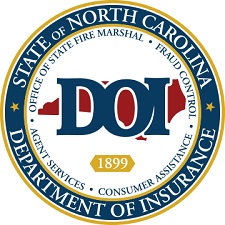
Special to Iredell Free News
RALEIGH — In recognition of Fire Prevention Week 2021, which runs from Oct. 3-9, Insurance Commissioner and State Fire Marshal Mike Causey is urging everyone to uphold this year’s campaign theme, “Learn the Sounds of Fire Safety.”
“It’s important to learn the different sounds of smoke and carbon monoxide alarms. When an alarm makes noise — a beeping sound or a chirping sound — you must take action!” Causey said. “Make sure everyone in the home understands the sounds of the alarms and knows how to respond.”
So far in 2021, there have been 100 fire deaths in North Carolina. The majority of those fires happened in homes without a working smoke alarm.
The goal of Fire Prevention Week is to educate everyone about simple but important actions they can take to keep themselves and those around them safe.
The Office of State Fire Marshal has created a video to showcase and explain the different sounds that smoke and carbon monoxide alarms make and how you should respond. Watch the video HERE.
Commissioner Causey is also sharing the following safety tips to help North Carolinians “Learn the Sounds of Fire Safety”:
A continuous set of three loud beeps — beep, beep, beep — means smoke or fire. Get out, call 911, and stay out.
A single chirp every 30 or 60 seconds means the battery is low and must be changed.
All smoke alarms must be replaced after 10 years.
Chirping that continues after the battery has been replaced means the alarm is at the end of its life and the unit must be replaced.
Make sure your smoke and carbon monoxide alarms meet the needs of all your family members, including those with sensory or physical disabilities.
“Knowing the difference between your smoke or carbon monoxide alarm and what it means when they sound can save your life,” Causey said. “I’m asking all families to participate in Fire Prevention Week by taking time to learn the sounds of fire safety, so you’ll be prepared in case of a fire.”
LEARN MORE
♦ To find out more about Fire Prevention Week programs and activities in North Carolina, contact your local fire department.
♦ For more information about fire safety and fire prevention, visit https://www.ncosfm.gov/injury-prevention/fire-prevention-education.
♦ For more general information about Fire Prevention Week, visit www.fpw.org



